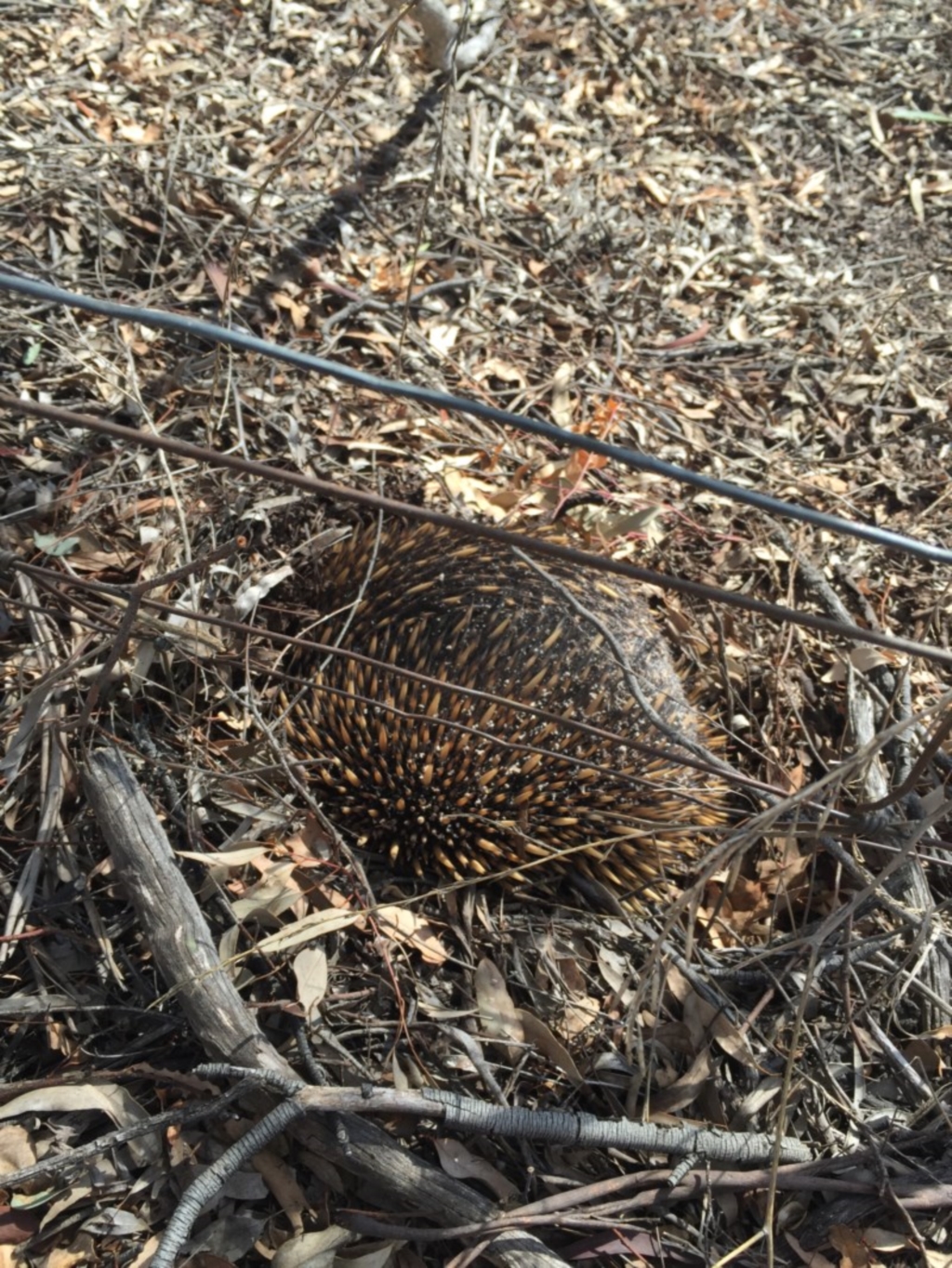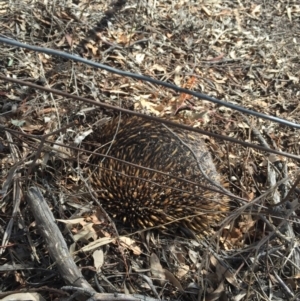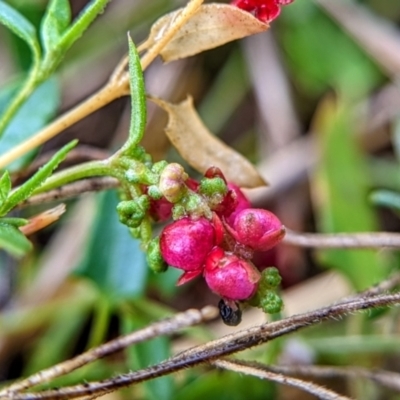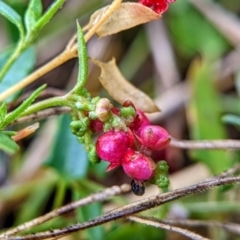Short-beaked Echidna at Hackett, ACT
Identification history
| Tachyglossus aculeatus | 19 May 2016 | michaelb | ||
| Tachyglossus aculeatus | 18 May 2016 | AaronClausen |
Identify this sighting
Please Login or Register to identify this sighting.
8 comments
waltraud
wrote:
19 May 2016
hi Aaron
seems the mammals are up and running even when pocking the nose into the ground ;)
seems the mammals are up and running even when pocking the nose into the ground ;)
waltraud
wrote:
19 May 2016
And what is the approach to avoid swamping CNM with Eastern Grey Kangaroo?
roymcd
wrote:
19 May 2016
http://www.abc.net.au/news/2016-05-13/kangaroos-to-be-culled-in-canberra-over-coming-months/7412680
AaronClausen
wrote:
19 May 2016
Waltraud I think we will end up assigning something like a "conservation value" across all species and members will be rewarded/recognised by reporting things with a higher conservation value/importance. It will then self regulate because people will get sick of reporting 100 kangaroos if they aren't earning any reputation or badges for the efforts etc. But sure we'll get a few kangaroos still I'm sure. We are finding though in general that as people learn more and get hooked, they move onto more interesting/rare/important species.
waltraud
wrote:
19 May 2016
thanks for your comment Aaron
I too will upload a couple (promise!) of roo photos together with photos that show the impact the overabundant herbivore has on the critically endangered grassy woodland.
I too will upload a couple (promise!) of roo photos together with photos that show the impact the overabundant herbivore has on the critically endangered grassy woodland.
AaronClausen
wrote:
19 May 2016
Yes I think they like munching our remaining Indigofera australis and orchids unfortunately.
waltraud
wrote:
20 May 2016
it is not only the indigofera and orchids that are affected by overgrazing. we lost native carrots, blue devils, blue bells and many other wildflower species which would make up the rich diverse grassy part of the endangered grassy woodland. It is devastating! the latest victim I noticed are Bulbine lilies, see for instance https://farm1.staticflickr.com/496/20028559228_51e0748f98_b.jpg. I could not believe my eyes when i saw how heavy they we are grazed probably because the land is flogged and not much else left.
michaelb
wrote:
20 May 2016
And when you lose the groundcover vegetation, you also lose many of the invertebrates, and this affects the larger animals such as birds which feed on them.
Please Login or Register to comment.
Nearby sightings
Location information
- Coordinates 149.173875-35.239586
- Altitude 691.6m
- Maps Mount Majura
- Places Hackett, ACT
Sighting information
- 1 Abundance
- 13 May 2016 01:55 PM Recorded on
- AaronClausen Recorded by
Species information
- Tachyglossus aculeatus Scientific name
- Short-beaked Echidna Common name
- Not Sensitive
- Local native
- Non-Invasive
- Up to 1438.2m Recorded at altitude
- 555 images trained Machine learning
-
In flower
- External link More information
Record quality
- Images or audio
- More than one media file
- Confirmed by an expert moderator
- Nearby sighting(s) of same species
- GPS evidence of location
- Description
- Additional attributes

















